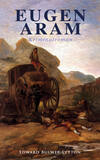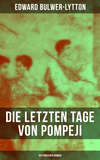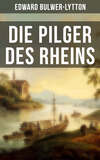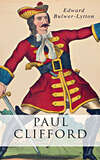Kitabı oku: «The Last Days of Pompeii», sayfa 19
'Ione,' said he, as he pressed her hand, 'should you hear my name blackened and maligned, will you credit the aspersion?'
'Never, my brother, never!'
'Dost thou not imagine, according to thy belief, that the evil-doer is punished hereafter, and the good rewarded?'
'Can you doubt it?'
'Dost thou think, then, that he who is truly good should sacrifice every selfish interest in his zeal for virtue?'
'He who doth so is the equal of the gods.'
'And thou believest that, according to the purity and courage with which he thus acts, shall be his portion of bliss beyond the grave?'
'So we are taught to hope.'
'Kiss me, my sister. One question more. Thou art to be wedded to Glaucus: perchance that marriage may separate us more hopelessly—but not of this speak I now—thou art to be married to Glaucus—dost thou love him? Nay, my sister, answer me by words.'
'Yes!' murmured Ione, blushing.
'Dost thou feel that, for his sake, thou couldst renounce pride, brave dishonour, and incur death? I have heard that when women really love, it is to that excess.'
'My brother, all this could I do for Glaucus, and feel that it were not a sacrifice. There is no sacrifice to those who love, in what is borne for the one we love.'
'Enough! shall woman feel thus for man, and man feel less devotion to his God?'
He spoke no more. His whole countenance seemed instinct and inspired with a divine life: his chest swelled proudly; his eyes glowed: on his forehead was writ the majesty of a man who can dare to be noble! He turned to meet the eyes of Ione—earnest, wistful, fearful—he kissed her fondly, strained her warmly to his breast, and in a moment more he had left the house.
Long did Ione remain in the same place, mute and thoughtful. The maidens again and again came to warn her of the deepening noon, and her engagement to Diomed's banquet. At length she woke from her reverie, and prepared, not with the pride of beauty, but listless and melancholy, for the festival: one thought alone reconciled her to the promised visit—she should meet Glaucus—she could confide to him her alarm and uneasiness for her brother.
Chapter III
A FASHIONABLE PARTY AND A DINNER A LA MODE IN POMPEII
MEANWHILE Sallust and Glaucus were slowly strolling towards the house of Diomed. Despite the habits of his life, Sallust was not devoid of many estimable qualities. He would have been an active friend, a useful citizen—in short, an excellent man, if he had not taken it into his head to be a philosopher. Brought up in the schools in which Roman plagiarism worshipped the echo of Grecian wisdom, he had imbued himself with those doctrines by which the later Epicureans corrupted the simple maxims of their great master. He gave himself altogether up to pleasure, and imagined there was no sage like a boon companion. Still, however, he had a considerable degree of learning, wit, and good nature; and the hearty frankness of his very vices seemed like virtue itself beside the utter corruption of Clodius and the prostrate effeminacy of Lepidus; and therefore Glaucus liked him the best of his companions; and he, in turn, appreciating the nobler qualities of the Athenian, loved him almost as much as a cold muraena, or a bowl of the best Falernian.
'This is a vulgar old fellow, this Diomed,' said Sallust: 'but he has some good qualities—in his cellar!'
'And some charming ones—in his daughter.'
'True, Glaucus: but you are not much moved by them, methinks. I fancy Clodius is desirous to be your successor.'
'He is welcome. At the banquet of Julia's beauty, no guest, be sure, is considered a musca.'
'You are severe: but she has, indeed, something of the Corinthian about her—they will be well matched, after all! What good-natured fellows we are to associate with that gambling good-for-nought.'
'Pleasure unites strange varieties,' answered Glaucus. 'He amuses me…'
'And flatters—but then he pays himself well! He powders his praise with gold-dust.'
'You often hint that he plays unfairly—think you so really?'
'My dear Glaucus, a Roman noble has his dignity to keep up—dignity is very expensive—Clodius must cheat like a scoundrel, in order to live like a gentleman.'
'Ha ha!—well, of late I have renounced the dice. Ah! Sallust, when I am wedded to Ione, I trust I may yet redeem a youth of follies. We are both born for better things than those in which we sympathize now—born to render our worship in nobler temples than the stye of Epicurus.'
'Alas!' returned Sallust, in rather a melancholy tone, 'what do we know more than this—life is short—beyond the grave all is dark? There is no wisdom like that which says "enjoy".'
'By Bacchus! I doubt sometimes if we do enjoy the utmost of which life is capable.'
'I am a moderate man,' returned Sallust, 'and do not ask "the utmost". We are like malefactors, and intoxicate ourselves with wine and myrrh, as we stand on the brink of death; but, if we did not do so, the abyss would look very disagreeable. I own that I was inclined to be gloomy until I took so heartily to drinking—that is a new life, my Glaucus.'
'Yes! but it brings us next morning to a new death.'
'Why, the next morning is unpleasant, I own; but, then, if it were not so, one would never be inclined to read. I study betimes—because, by the gods! I am generally unfit for anything else till noon.'
'Fie, Scythian!'
'Pshaw! the fate of Pentheus to him who denies Bacchus.'
'Well, Sallust, with all your faults, you are the best profligate I ever met: and verily, if I were in danger of life, you are the only man in all Italy who would stretch out a finger to save me.'
'Perhaps I should not, if it were in the middle of supper. But, in truth, we Italians are fearfully selfish.'
'So are all men who are not free,' said Glaucus, with a sigh. 'Freedom alone makes men sacrifice to each other.'
'Freedom, then, must be a very fatiguing thing to an Epicurean,' answered Sallust. 'But here we are at our host's.'
As Diomed's villa is one of the most considerable in point of size of any yet discovered at Pompeii, and is, moreover, built much according to the specific instructions for a suburban villa laid down by the Roman architect, it may not be uninteresting briefly to describe the plan of the apartments through which our visitors passed.
They entered, then, by the same small vestibule at which we have before been presented to the aged Medon, and passed at once into a colonnade, technically termed the peristyle; for the main difference between the suburban villa and the town mansion consisted in placing, in the first, the said colonnade in exactly the same place as that which in the town mansion was occupied by the atrium. In the centre of the peristyle was an open court, which contained the impluvium.
From this peristyle descended a staircase to the offices; another narrow passage on the opposite side communicated with a garden; various small apartments surrounded the colonnade, appropriated probably to country visitors. Another door to the left on entering communicated with a small triangular portico, which belonged to the baths; and behind was the wardrobe, in which were kept the vests of the holiday suits of the slaves, and, perhaps, of the master. Seventeen centuries afterwards were found those relics of ancient finery calcined and crumbling: kept longer, alas! than their thrifty lord foresaw.
Return we to the peristyle, and endeavor now to present to the reader a coup d'oeil of the whole suite of apartments, which immediately stretched before the steps of the visitors.
Let him then first imagine the columns of the portico, hung with festoons of flowers; the columns themselves in the lower part painted red, and the walls around glowing with various frescoes; then, looking beyond a curtain, three parts drawn aside, the eye caught the tablinum or saloon (which was closed at will by glazed doors, now slid back into the walls). On either side of this tablinum were small rooms, one of which was a kind of cabinet of gems; and these apartments, as well as the tablinum, communicated with a long gallery, which opened at either end upon terraces; and between the terraces, and communicating with the central part of the gallery, was a hall, in which the banquet was that day prepared. All these apartments, though almost on a level with the street, were one story above the garden; and the terraces communicating with the gallery were continued into corridors, raised above the pillars which, to the right and left, skirted the garden below.
Beneath, and on a level with the garden, ran the apartments we have already described as chiefly appropriated to Julia.
In the gallery, then, just mentioned, Diomed received his guests.
The merchant affected greatly the man of letters, and, therefore, he also affected a passion for everything Greek; he paid particular attention to Glaucus.
'You will see, my friend,' said he, with a wave of his hand, 'that I am a little classical here—a little Cecropian—eh? The hall in which we shall sup is borrowed from the Greeks. It is an OEcus Cyzicene. Noble Sallust, they have not, I am told, this sort of apartment in Rome.'
'Oh!' replied Sallust, with a half smile; 'you Pompeians combine all that is most eligible in Greece and in Rome; may you, Diomed, combine the viands as well as the architecture!'
'You shall see—you shall see, my Sallust,' replied the merchant. 'We have a taste at Pompeii, and we have also money.'
'They are two excellent things,' replied Sallust. 'But, behold, the lady Julia!'
The main difference, as I have before remarked, in the manner of life observed among the Athenians and Romans, was, that with the first, the modest women rarely or never took part in entertainments; with the latter, they were the common ornaments of the banquet; but when they were present at the feast, it usually terminated at an early hour.
Magnificently robed in white, interwoven with pearls and threads of gold, the handsome Julia entered the apartment.
Scarcely had she received the salutation of the two guests, ere Pansa and his wife, Lepidus, Clodius, and the Roman senator, entered almost simultaneously; then came the widow Fulvia; then the poet Fulvius, like to the widow in name if in nothing else; the warrior from Herculaneum, accompanied by his umbra, next stalked in; afterwards, the less eminent of the guests. Ione yet tarried.
It was the mode among the courteous ancients to flatter whenever it was in their power: accordingly it was a sign of ill-breeding to seat themselves immediately on entering the house of their host. After performing the salutation, which was usually accomplished by the same cordial shake of the right hand which we ourselves retain, and sometimes, by the yet more familiar embrace, they spent several minutes in surveying the apartment, and admiring the bronzes, the pictures, or the furniture, with which it was adorned—a mode very impolite according to our refined English notions, which place good breeding in indifference. We would not for the world express much admiration of another man's house, for fear it should be thought we had never seen anything so fine before!
'A beautiful statue this of Bacchus!' said the Roman senator.
'A mere trifle!' replied Diomed.
'What charming paintings!' said Fulvia.
'Mere trifles!' answered the owner.
'Exquisite candelabra!' cried the warrior.
'Exquisite!' echoed his umbra.
'Trifles! trifles!' reiterated the merchant.
Meanwhile, Glaucus found himself by one of the windows of the gallery, which communicated with the terraces, and the fair Julia by his side.
'Is it an Athenian virtue, Glaucus,' said the merchant's daughter, 'to shun those whom we once sought?'
'Fair Julia—no!'
'Yet methinks, it is one of the qualities of Glaucus.'
'Glaucus never shuns a friend!' replied the Greek, with some emphasis on the last word.
'May Julia rank among the number of his friends?'
'It would be an honour to the emperor to find a friend in one so lovely.'
'You evade my question,' returned the enamoured Julia. 'But tell me, is it true that you admire the Neapolitan Ione?'
'Does not beauty constrain our admiration?'
'Ah! subtle Greek, still do you fly the meaning of my words. But say, shall Julia be indeed your friend?'
'If she will so favor me, blessed be the gods! The day in which I am thus honored shall be ever marked in white.'
'Yet, even while you speak, your eye is resting—your color comes and goes—you move away involuntarily—you are impatient to join Ione!'
For at that moment Ione had entered, and Glaucus had indeed betrayed the emotion noticed by the jealous beauty.
'Can admiration to one woman make me unworthy the friendship of another? Sanction not so, O Julia the libels of the poets on your sex!'
'Well, you are right—or I will learn to think so. Glaucus, yet one moment! You are to wed Ione; is it not so?'
'If the Fates permit, such is my blessed hope.'
'Accept, then, from me, in token of our new friendship, a present for your bride. Nay, it is the custom of friends, you know, always to present to bride and bridegroom some such little marks of their esteem and favoring wishes.'
'Julia! I cannot refuse any token of friendship from one like you. I will accept the gift as an omen from Fortune herself.'
'Then, after the feast, when the guests retire, you will descend with me to my apartment, and receive it from my hands. Remember!' said Julia, as she joined the wife of Pansa, and left Glaucus to seek Ione.
The widow Fulvia and the spouse of the aedile were engaged in high and grave discussion.
'O Fulvia! I assure you that the last account from Rome declares that the frizzling mode of dressing the hair is growing antiquated; they only now wear it built up in a tower, like Julia's, or arranged as a helmet—the Galerian fashion, like mine, you see: it has a fine effect, I think. I assure you, Vespius (Vespius was the name of the Herculaneum hero) admires it greatly.'
'And nobody wears the hair like yon Neapolitan, in the Greek way.'
'What, parted in front, with the knot behind? Oh, no; how ridiculous it is! it reminds one of the statue of Diana! Yet this Ione is handsome, eh?'
'So the men say; but then she is rich: she is to marry the Athenian—I wish her joy. He will not be long faithful, I suspect; those foreigners are very faithless.'
'Oh, Julia!' said Fulvia, as the merchant's daughter joined them; 'have you seen the tiger yet?'
'No!'
'Why, all the ladies have been to see him. He is so handsome!'
'I hope we shall find some criminal or other for him and the lion,' replied Julia. 'Your husband (turning to Pansa's wife) is not so active as he should be in this matter.'
'Why, really, the laws are too mild,' replied the dame of the helmet. 'There are so few offences to which the punishment of the arena can be awarded; and then, too, the gladiators are growing effeminate! The stoutest bestiarii declare they are willing enough to fight a boar or a bull; but as for a lion or a tiger, they think the game too much in earnest.'
'They are worthy of a mitre,' replied Julia, in disdain.
'Oh! have you seen the new house of Fulvius, the dear poet?' said Pansa's wife.
'No: is it handsome?'
'Very!—such good taste. But they say, my dear, that he has such improper pictures! He won't show them to the women: how ill-bred!'
'Those poets are always odd,' said the widow. 'But he is an interesting man; what pretty verses he writes! We improve very much in poetry: it is impossible to read the old stuff now.'
'I declare I am of your opinion, returned the lady of the helmet. 'There is so much more force and energy in the modern school.'
The warrior sauntered up to the ladies.
'It reconciles me to peace,' said he, 'when I see such faces.'
'Oh! you heroes are ever flatterers,' returned Fulvia, hastening to appropriate the compliment specially to herself.
'By this chain, which I received from the emperor's own hand,' replied the warrior, playing with a short chain which hung round the neck like a collar, instead of descending to the breast, according to the fashion of the peaceful—'By this chain, you wrong me! I am a blunt man—a soldier should be so.'
'How do you find the ladies of Pompeii generally?' said Julia.
'By Venus, most beautiful! They favor me a little, it is true, and that inclines my eyes to double their charms.'
'We love a warrior,' said the wife of Pansa.
'I see it: by Hercules! it is even disagreeable to be too celebrated in these cities. At Herculaneum they climb the roof of my atrium to catch a glimpse of me through the compluvium; the admiration of one's citizens is pleasant at first, but burthensome afterwards.'
'True, true, O Vespius!' cried the poet, joining the group: 'I find it so myself.'
'You!' said the stately warrior, scanning the small form of the poet with ineffable disdain. 'In what legion have you served?'
'You may see my spoils, my exuviae, in the forum itself,' returned the poet, with a significant glance at the women. 'I have been among the tent-companions, the contubernales, of the great Mantuan himself.'
'I know no general from Mantua, said the warrior, gravely. 'What campaign have you served?'
'That of Helicon.'
'I never heard of it.'
'Nay, Vespius, he does but joke,' said Julia, laughing.
'Joke! By Mars, am I a man to be joked!'
'Yes; Mars himself was in love with the mother of jokes,' said the poet, a little alarmed. 'Know, then, O Vespius! that I am the poet Fulvius. It is I who make warriors immortal!'
'The gods forbid!' whispered Sallust to Julia. 'If Vespius were made immortal, what a specimen of tiresome braggadocio would be transmitted to posterity!'
The soldier looked puzzled; when, to the infinite relief of himself and his companions, the signal for the feast was given.
As we have already witnessed at the house of Glaucus the ordinary routine of a Pompeian entertainment, the reader is spared any second detail of the courses, and the manner in which they were introduced.
Diomed, who was rather ceremonious, had appointed a nomenclator, or appointer of places to each guest.
The reader understands that the festive board was composed of three tables; one at the centre, and one at each wing. It was only at the outer side of these tables that the guests reclined; the inner space was left untenanted, for the greater convenience of the waiters or ministri. The extreme corner of one of the wings was appropriated to Julia as the lady of the feast; that next her, to Diomed. At one corner of the centre table was placed the aedile; at the opposite corner, the Roman senator—these were the posts of honour. The other guests were arranged, so that the young (gentleman or lady) should sit next each other, and the more advanced in years be similarly matched. An agreeable provision enough, but one which must often have offended those who wished to be thought still young.
The chair of Ione was next to the couch of Glaucus. The seats were veneered with tortoiseshell, and covered with quilts stuffed with feathers, and ornamented with costly embroideries. The modern ornaments of epergne or plateau were supplied by images of the gods, wrought in bronze, ivory, and silver. The sacred salt-cellar and the familiar Lares were not forgotten. Over the table and the seats a rich canopy was suspended from the ceiling. At each corner of the table were lofty candelabra—for though it was early noon, the room was darkened—while from tripods, placed in different parts of the room, distilled the odor of myrrh and frankincense; and upon the abacus, or sideboard, large vases and various ornaments of silver were ranged, much with the same ostentation (but with more than the same taste) that we find displayed at a modern feast.
The custom of grace was invariably supplied by that of libations to the gods; and Vesta, as queen of the household gods, usually received first that graceful homage.
This ceremony being performed, the slaves showered flowers upon the couches and the floor, and crowned each guest with rosy garlands, intricately woven with ribands, tied by the rind of the linden-tree, and each intermingled with the ivy and the amethyst—supposed preventives against the effect of wine; the wreaths of the women only were exempted from these leaves, for it was not the fashion for them to drink wine in public. It was then that the president Diomed thought it advisable to institute a basileus, or director of the feast—an important office, sometimes chosen by lot; sometimes, as now, by the master of the entertainment.
Diomed was not a little puzzled as to his election. The invalid senator was too grave and too infirm for the proper fulfilment of his duty; the aedile Pansa was adequate enough to the task: but then, to choose the next in official rank to the senator, was an affront to the senator himself. While deliberating between the merits of the others, he caught the mirthful glance of Sallust, and, by a sudden inspiration, named the jovial epicure to the rank of director, or arbiter bibendi.
Sallust received the appointment with becoming humility.
'I shall be a merciful king,' said he, 'to those who drink deep; to a recusant, Minos himself shall be less inexorable. Beware!'
The slaves handed round basins of perfumed water, by which lavation the feast commenced: and now the table groaned under the initiatory course.
The conversation, at first desultory and scattered, allowed Ione and Glaucus to carry on those sweet whispers, which are worth all the eloquence in the world. Julia watched them with flashing eyes.
'How soon shall her place be mine!' thought she.
But Clodius, who sat in the centre table, so as to observe well the countenance of Julia, guessed her pique, and resolved to profit by it. He addressed her across the table in set phrases of gallantry; and as he was of high birth and of a showy person, the vain Julia was not so much in love as to be insensible to his attentions.
The slaves, in the interim, were constantly kept upon the alert by the vigilant Sallust, who chased one cup by another with a celerity which seemed as if he were resolved upon exhausting those capacious cellars which the reader may yet see beneath the house of Diomed. The worthy merchant began to repent his choice, as amphora after amphora was pierced and emptied. The slaves, all under the age of manhood (the youngest being about ten years old—it was they who filled the wine—the eldest, some five years older, mingled it with water), seemed to share in the zeal of Sallust; and the face of Diomed began to glow as he watched the provoking complacency with which they seconded the exertions of the king of the feast.
'Pardon me, O senator!' said Sallust; 'I see you flinch; your purple hem cannot save you—drink!'
'By the gods,' said the senator, coughing, 'my lungs are already on fire; you proceed with so miraculous a swiftness, that Phaeton himself was nothing to you. I am infirm, O pleasant Sallust: you must exonerate me.'
'Not I, by Vesta! I am an impartial monarch—drink.'
The poor senator, compelled by the laws of the table, was forced to comply. Alas! every cup was bringing him nearer and nearer to the Stygian pool.
'Gently! gently! my king,' groaned Diomed; 'we already begin to…'
'Treason!' interrupted Sallust; 'no stern Brutus here!—no interference with royalty!'
'But our female guests…'
'Love a toper! Did not Ariadne dote upon Bacchus?'
The feast proceeded; the guests grew more talkative and noisy; the dessert or last course was already on the table; and the slaves bore round water with myrrh and hyssop for the finishing lavation. At the same time, a small circular table that had been placed in the space opposite the guests suddenly, and as by magic, seemed to open in the centre, and cast up a fragrant shower, sprinkling the table and the guests; while as it ceased the awning above them was drawn aside, and the guests perceived that a rope had been stretched across the ceiling, and that one of those nimble dancers for which Pompeii was so celebrated, and whose descendants add so charming a grace to the festivities of Astley's or Vauxhall, was now treading his airy measures right over their heads.
This apparition, removed but by a cord from one's pericranium, and indulging the most vehement leaps, apparently with the intention of alighting upon that cerebral region, would probably be regarded with some terror by a party in May Fair; but our Pompeian revellers seemed to behold the spectacle with delighted curiosity, and applauded in proportion as the dancer appeared with the most difficulty to miss falling upon the head of whatever guest he particularly selected to dance above. He paid the senator, indeed, the peculiar compliment of literally falling from the rope, and catching it again with his hand, just as the whole party imagined the skull of the Roman was as much fractured as ever that of the poet whom the eagle took for a tortoise. At length, to the great relief of at least Ione, who had not much accustomed herself to this entertainment, the dancer suddenly paused as a strain of music was heard from without. He danced again still more wildly; the air changed, the dancer paused again; no, it could not dissolve the charm which was supposed to possess him! He represented one who by a strange disorder is compelled to dance, and whom only a certain air of music can cure. At length the musician seemed to hit on the right tune; the dancer gave one leap, swung himself down from the rope, alighted on the floor, and vanished.
One art now yielded to another; and the musicians who were stationed without on the terrace struck up a soft and mellow air, to which were sung the following words, made almost indistinct by the barrier between and the exceeding lowness of the minstrelsy:—
FESTIVE MUSIC SHOULD BE LOW
I
Hark! through these flowers our music sends its greeting
To your loved halls, where Psilas shuns the day;
When the young god his Cretan nymph was meeting
He taught Pan's rustic pipe this gliding lay:
Soft as the dews of wine
Shed in this banquet hour,
The rich libation of Sound's stream divine,
O reverent harp, to Aphrodite pour!
II
Wild rings the trump o'er ranks to glory marching;
Music's sublimer bursts for war are meet;
But sweet lips murmuring under wreaths o'er-arching,
Find the low whispers like their own most sweet.
Steal, my lull'd music, steal
Like womans's half-heard tone,
So that whoe'er shall hear, shall think to feel
In thee the voice of lips that love his own.
At the end of that song Ione's cheek blushed more deeply than before, and Glaucus had contrived, under cover of the table, to steal her hand.
'It is a pretty song,' said Fulvius, patronizingly.
'Ah! if you would oblige us!' murmured the wife of Pansa.
'Do you wish Fulvius to sing?' asked the king of the feast, who had just called on the assembly to drink the health of the Roman senator, a cup to each letter of his name.
'Can you ask?' said the matron, with a complimentary glance at the poet.
Sallust snapped his fingers, and whispering the slave who came to learn his orders, the latter disappeared, and returned in a few moments with a small harp in one hand, and a branch of myrtle in the other. The slave approached the poet, and with a low reverence presented to him the harp.
'Alas! I cannot play,' said the poet.
'Then you must sing to the myrtle. It is a Greek fashion: Diomed loves the Greeks—I love the Greeks—you love the Greeks—we all love the Greeks—and between you and me this is not the only thing we have stolen from them. However, I introduce this custom—I, the king: sing, subject, sing!' The poet, with a bashful smile, took the myrtle in his hands, and after a short prelude sang as follows, in a pleasant and well-tuned voice:—
THE CORONATION OF THE LOVES
I
The merry Loves one holiday
Were all at gambols madly;
But Loves too long can seldom play
Without behaving sadly.
They laugh'd, they toy'd, they romp'd about,
And then for change they all fell out.
Fie, fie! how can they quarrel so?
My Lesbia—ah, for shame, love
Methinks 'tis scarce an hour ago
When we did just the same, love.
II
The Loves, 'tis thought, were free till then,
They had no king or laws, dear;
But gods, like men, should subject be,
Say all the ancient saws, dear.
And so our crew resolved, for quiet,
To choose a king to curb their riot.
A kiss: ah! what a grievous thing
For both, methinks, 'twould be, child,
If I should take some prudish king,
And cease to be so free, child!
III
Among their toys a Casque they found,
It was the helm of Ares;
With horrent plumes the crest was crown'd,
It frightened all the Lares.
So fine a king was never known—
They placed the helmet on the throne.
My girl, since Valor wins the world,
They chose a mighty master;
But thy sweet flag of smiles unfurled
Would win the world much faster!
IV
The Casque soon found the Loves too wild
A troop for him to school them;
For warriors know how one such child
Has aye contrived to fool them.
They plagued him so, that in despair
He took a wife the plague to share.
If kings themselves thus find the strife
Of earth, unshared, severe, girl;
Why just to halve the ills of life,
Come, take your partner here, girl.
V
Within that room the Bird of Love
The whole affair had eyed then;
The monarch hail'd the royal dove,
And placed her by his side then:
What mirth amidst the Loves was seen!
'Long live,' they cried, 'our King and Queen.'
Ah! Lesbia, would that thrones were mine,
And crowns to deck that brow, love!
And yet I know that heart of thine
For me is throne enow, love!
VI
The urchins hoped to tease the mate
As they had teased the hero;
But when the Dove in judgment sate
They found her worse than Nero!
Each look a frown, each word a law;
The little subjects shook with awe.
In thee I find the same deceit—
Too late, alas! a learner!
For where a mien more gently sweet?
And where a tyrant sterner?
This song, which greatly suited the gay and lively fancy of the Pompeians, was received with considerable applause, and the widow insisted on crowning her namesake with the very branch of myrtle to which he had sung. It was easily twisted into a garland, and the immortal Fulvius was crowned amidst the clapping of hands and shouts of Io triumphe! The song and the harp now circulated round the party, a new myrtle branch being handed about, stopping at each person who could be prevailed upon to sing.




















